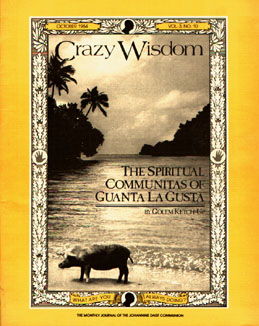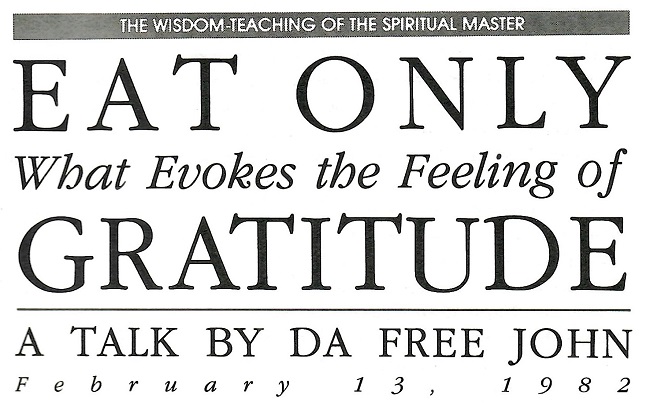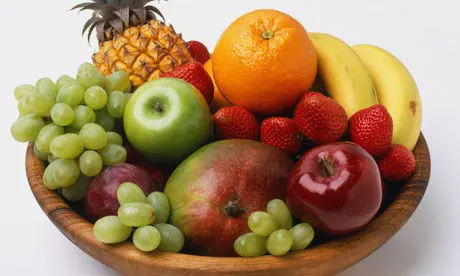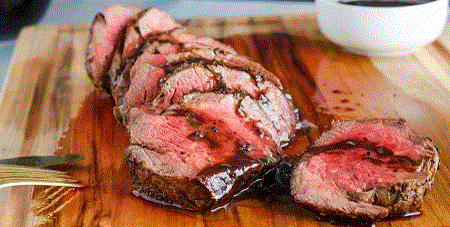Originally published in ‘Crazy Wisdom’
The Monthly Journal of the Johannine Daist Communion, October 1984, Vol 3, NO 10

THE OPTIMUM DIET
February 28, 1982
MASTER DA: The more natural and less exaggerated you become in your practice of life altogether, the more minimal your food requirements become, so that you can eventually live on a simple diet of highly eliminative and mostly raw foods. Then you would not eat any killed food and would have at most a minimal intake of starchy foods such as grains.
Some people can even reach the point where they live entirely on raw food—mainly fruits, sprouts, and greens. Many other people, of course, cannot live on an all-raw diet, but this does not mean that they have a spiritual impediment. The Raw Gorilla was an effort on our part to describe a particular kind of diet that may be suitable for some people.
Our discipline, you see, is to develop our capacity to survive on an ideal, or “optimum,” diet. The optimum diet in anyone’s case is determined by his or her own functional existence. Once you pass through the process of purifying yourself and overcoming your arbitrary, self-based tendencies relative to food, you will discover your own optimum diet.
Some people can even live on a raw diet, a fruit diet, or perhaps, in very rare cases, eventually a diet of breath alone. But in the average case, the diet will probably remain vegetarian, will be basically free of milk products, will make minimal use of grains, preferably whole rice, and will include some cooked vegetables. A large portion of the diet will be raw vegetables, sprouts, seeds, and fruits, unless the person reacts to the sugar content in fruit.
It is the optimum diet, then, that we should develop—the diet that permits us to live in a balanced state, to maximize the body’s eliminative capability, and to minimize its needs for various nutritive substances. In other words, the diet should get the maximum nutrition out of the minimum amount of substances. And the substances used should be those that require the least amount of cooking and treatment of various kinds and that resort to a minimal range of the dietary sources. Therefore, the diet should eliminate or minimize the extremely earthy dietary sources, such as killed foods, milk products, and most of the grains.
For most people, perhaps, practicing the optimum diet will mean surviving largely on raw foods with some cooked foods. The cooked foods would be mainly those foods that really cannot be ingested very well or that do not supply the body with its needs very well without being cooked or transformed through heat. This category of foods includes some grains, especially the most valuable grains such as whole rice, and some vegetables.


MASTER DA: (taking an apple from the fruit bowl behind him): There is something about a fruit—an apple, an orange, a lemon, whatever it is. You can simply glance at it casually, as we do most of the time, but if you really look at it, really examine it and allow yourself to feel it, a fruit always evokes the feeling of gratitude. Always! There is something about the quality of a fruit that does this. It has nothing to so with all our thinking about it. Fruits of all kinds really do evoke the feeling of gratitude if we truly enter into contemplation of them.
Look at a minute steak or a Big Mac, or even a Chateaubriand. [Laughter. ] Look at a fine cut of steak, a filet mignon, properly aged from a corn-fed cow, and it will not evoke the feeling of gratitude.
You may be happy to get it if you are starving, but it does not, if you contemplate it, evoke the feeling of gratitude. Yet, fruits always evoke this feeling if you truly enter into the perception of them. Always. In the food chain, from fruit to seeds and nuts, to vegetables, down to killed foods, the attitude of gratitude is less and less inherent in your perception of these substances. You cannot go much further in the food chain than the grains and still feel grateful when you look at the food! The grains have this quality and evoke a certain level of gratitude, but even with grains, gratitude is complicated by another feeling—just a fraction of it—that is in the direction of self-possession and feels like death. But if you continue the food chain from there and start looking at killed creatures, you realize that gratitude is not at all evoked by the contemplation of these substances.
This observation should say something to us about our proper food. Fundamentally, our proper food is fruit, nuts, seeds, and particularly the superficial vegetation, or that portion of vegetation you can cut off and eat without killing the parent plant. Even in the vegetable portion of the food chain, when you get to the point where you kill the parent plant to eat it, you have less of the feeling of gratitude when you view that substance.
You do not actually kill the parent plant of a grain, so a certain sense of gratitude is still evoked by the witnessing of grains. They are the fruits of a certain form of vegetation. A fruit is a bearer of a seed. Rice, for example, is a kind of fruit, therefore. Everything that is a fruit, that contains the seed of a plant and can be taken without destroying the parent plant or living source, will evoke the feeling of gratitude if you will merely observe it. Apples, oranges, and the other big fruits obviously do this, and the smaller substances such as little grains and seeds also evoke that feeling. But as soon as you look at an edible substance you had to kill or whose source or parent you had to kill, then you will notice that you do not inherently and naturally feel gratitude. This is completely apart from any mental sense that you had to kill something or any accompanying guilt or negation of idealisms. If you just witness or meditate on that substance, you will notice that you feel gratitude to a profoundly lesser degree than you do when you observe the seed-bearing fruits of living things.
We should eat what we can eat with gratitude, and we should not eat anything else. And gratitude can be dummied up in the mind, you see. Therefore, we should eat only that to which we respond quite naturally with gratitude if we contemplate it. Or we should know that if we eat anything else, some living thing had to be sacrificed, and therefore we must participate sacramentally even in that event. Basically, we should purify ourselves to the degree that we eat only what we can eat with gratitude. If we do, we will exist in a state of equanimity quite naturally. Everything else is basically not our proper food, except perhaps in some emergency where we need to be vitalized and therefore need to sacrifice some living creature.
We should not feel that sacrifice itself is not allowable, that it is never appropriate to take the life of some parent plant or some creature. There may be occasions where it is necessary or appropriate, just as we ourselves die. But our basic food, that by which we sustain ourselves as a general rule from day to day, should be that to which we respond naturally, via contemplation, with gratitude. And that source of food is essentially all the seed-bearing fruits, the extensions or excess of living things that are basically to be found in the vegetable and fruit-bearing domain.
You cannot feel that gratitude upon contemplating a filet mignon or a Big Mac. Even a Big Mac, you see, is mostly a chemical product—very little in it may ever have lived. Nor will it grant life to you!
A substance whose source had to be killed to give you something to eat does not naturally, upon contemplation, evoke the feeling of gratitude. Sometimes we must kill a source creature to get a substance that will act as a kind of medication. Sometimes we must sacrifice something lower to sustain something higher. But we should know, then, that we are engaged in a sacrifice, and we must therefore purify ourselves and partake of that food intelligently, not wantonly or casually.

